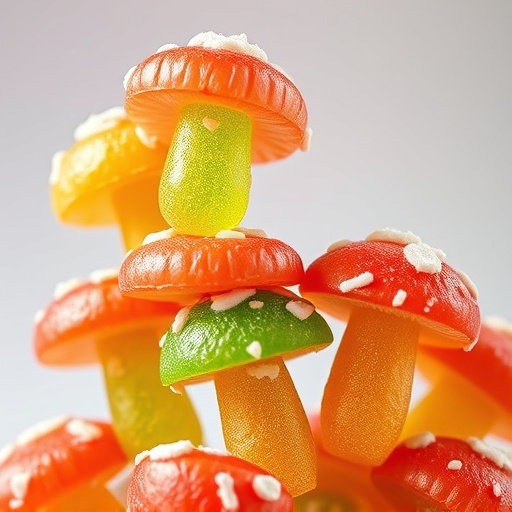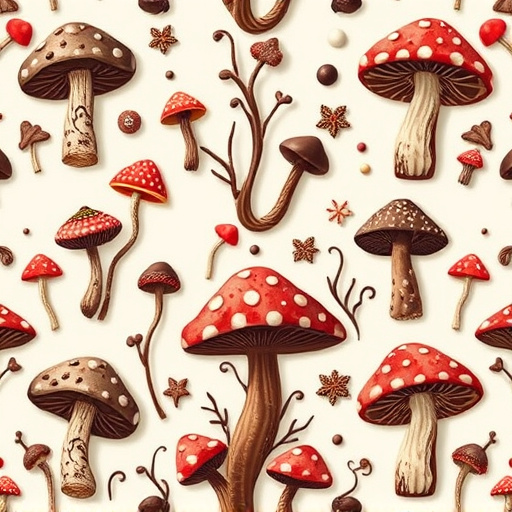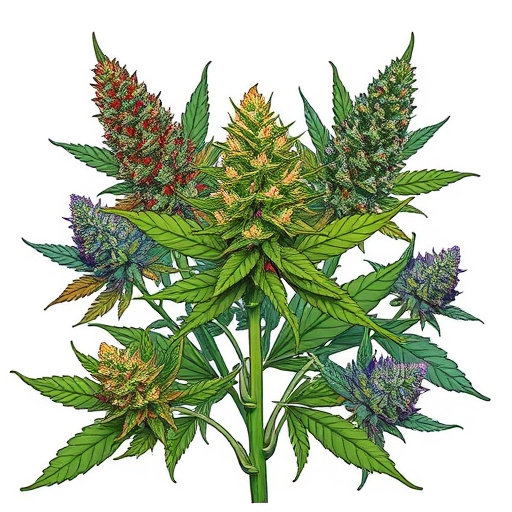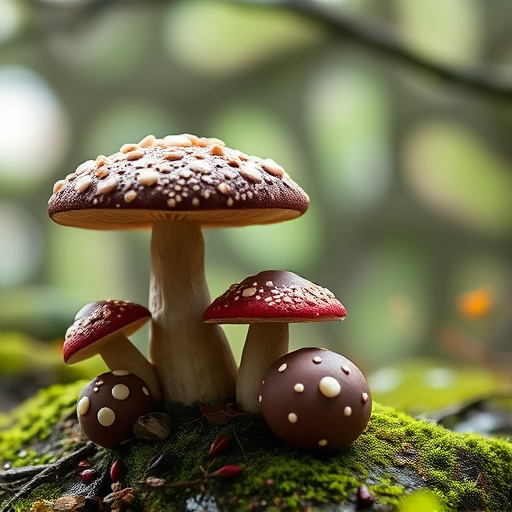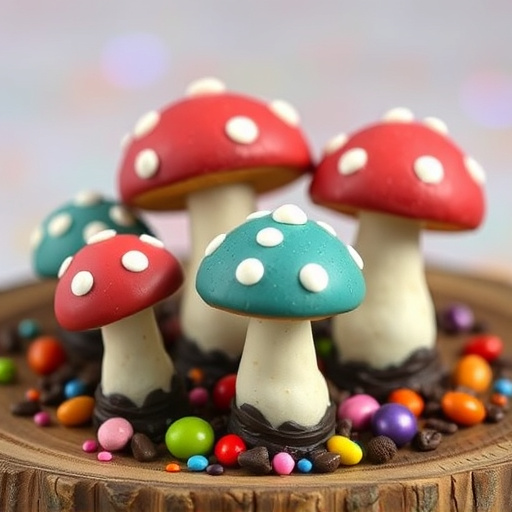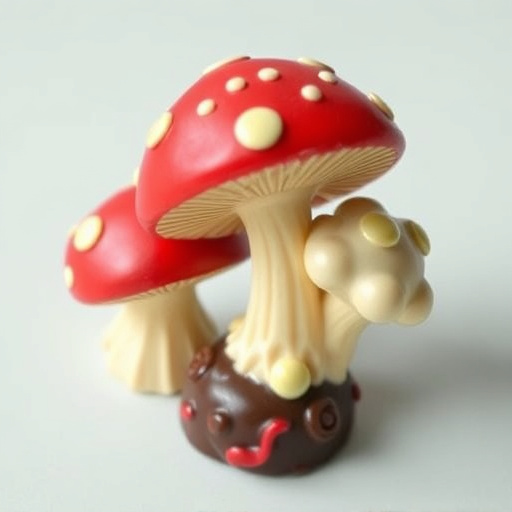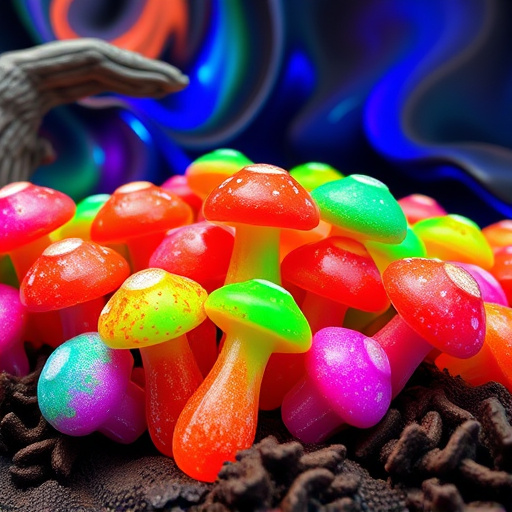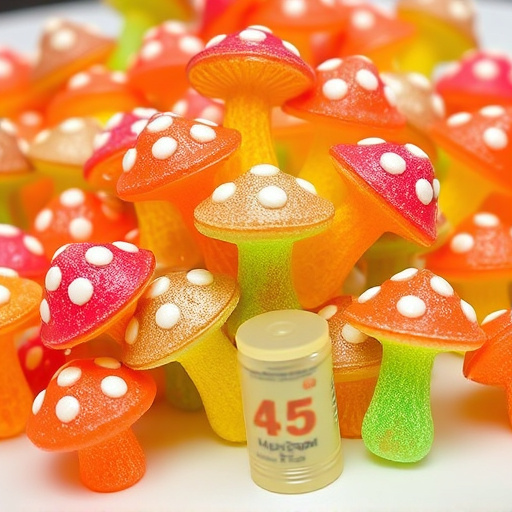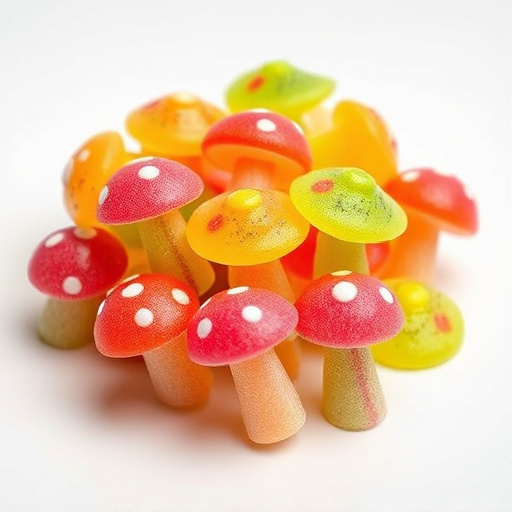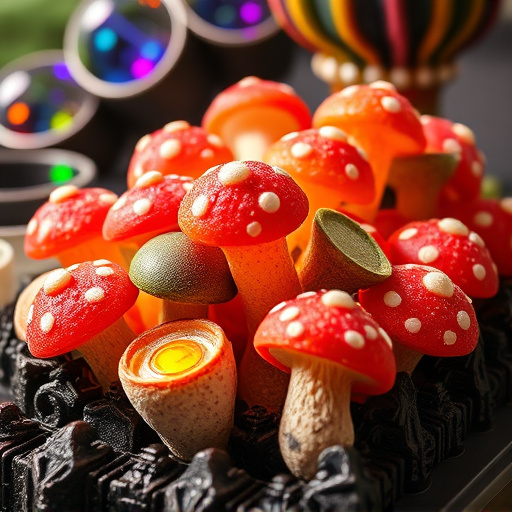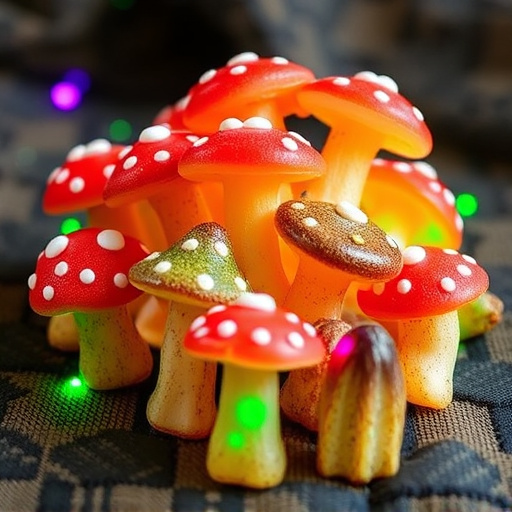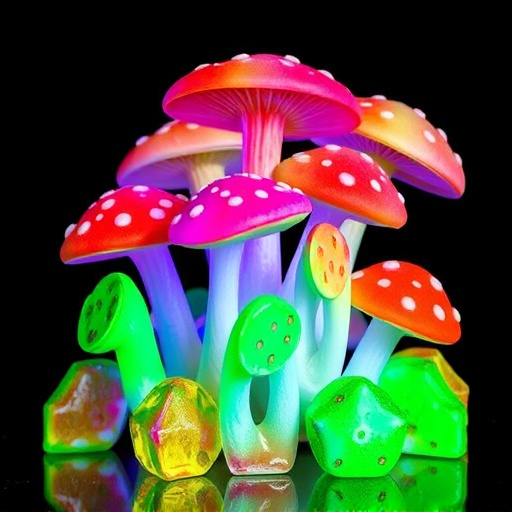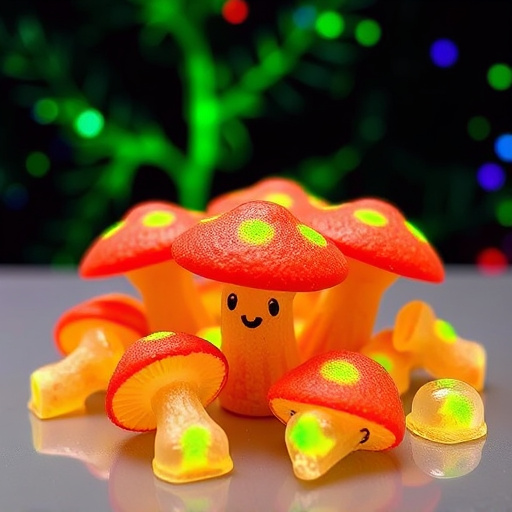Magic mushroom gummies, containing psilocybin, interact with brain serotonin receptors, disrupting neural activity for altered consciousness and enhanced cognitive abilities. Research highlights their potential in treating mental health disorders by promoting neuroplasticity and neural connectivity, making them a promising therapeutic tool. Microdosing these gummies shows promise in improving creativity, problem-solving, mood, and well-being, with ongoing studies aiming to revolutionize our understanding of mental health and cognitive enhancement.
“Unraveling the Power of Magic Mushroom Gummies: From Science to Potential Benefits
Magic mushroom gummies, a modern twist on traditional psychedelics, have sparked curiosity due to their claimed effects on brain function. This article explores the science behind these edible treats and their impact on neural connectivity. We delve into recent research on microdosing and its potential cognitive benefits, including enhanced creativity and emotional intelligence. Additionally, we examine safety considerations, dosage guidelines, and the emerging role of magic mushroom experiences in therapeutic settings.”
- The Science Behind Magic Mushroom Gummies and Brain Function
- – Explaining neural connectivity and how magic mushrooms interact with the brain
- – Recent studies on microdosing and its effects on cognitive function
The Science Behind Magic Mushroom Gummies and Brain Function
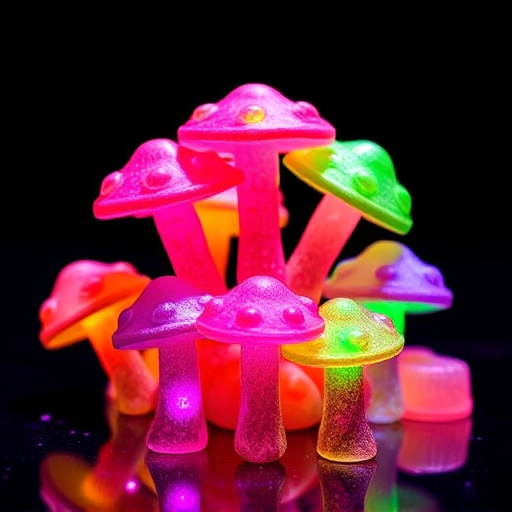
The science behind Magic Mushroom Gummies and brain function is a fascinating area of study. Research suggests that psilocybin, the active compound found in magic mushrooms, can significantly impact neural connectivity within the brain. When consumed as gummies, psilocybin stimulates certain receptors, leading to altered states of consciousness and enhanced cognitive functions. Studies have shown promise in its potential to treat depression, anxiety, and even addiction by promoting neuroplasticity—the brain’s ability to form new neural connections.
Magic Mushroom Gummies and Neural Connectivity work through complex mechanisms, affecting the release of neurotransmitters like serotonin and dopamine. This interaction can foster better communication between different brain regions, leading to improved emotional regulation, creativity, and problem-solving skills. The gummy format makes it a more palatable and controlled method of consumption compared to traditional mushrooms, allowing for precise dosing and easier management of potential psychedelic experiences.
– Explaining neural connectivity and how magic mushrooms interact with the brain
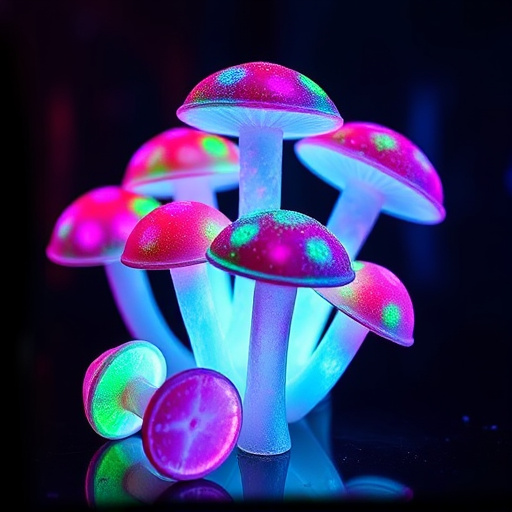
Magic mushroom gummies, like their traditional counterparts, interact with the brain by affecting neural connectivity. These mushrooms contain psilocybin, a compound that acts as a serotonin receptor agonist. Serotonin is a neurotransmitter responsible for regulating mood, perception, and cognitive functions. When psilocybin binds to serotonin receptors, it disrupts normal neural activity, leading to altered states of consciousness and various sensory experiences.
The brain’s neural connectivity refers to the complex network of neurons that communicate with each other through electrical and chemical signals. Psilocybin influences this connectivity by enhancing certain neural pathways while inhibiting others. This disruption can result in heightened creativity, emotional insights, and even spiritual experiences. Research suggests that magic mushroom gummies may have therapeutic potential for conditions like depression, anxiety, and PTSD by facilitating neuroplasticity and promoting new connections between neurons.
– Recent studies on microdosing and its effects on cognitive function
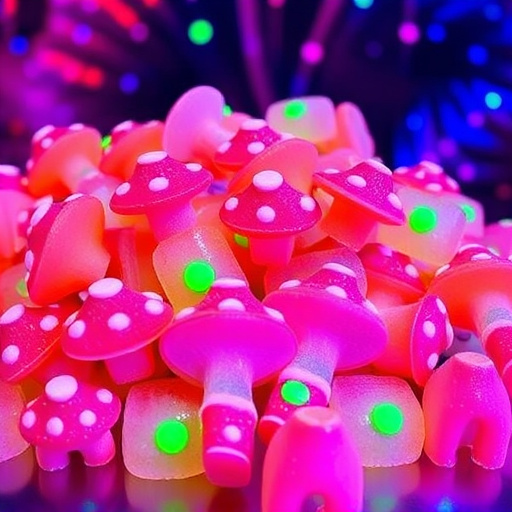
Recent studies have explored the potential benefits of microdosing magic mushroom gummies on cognitive function, shedding light on their effects on neural connectivity. Research suggests that these tiny doses can enhance creativity and problem-solving skills while improving mood and overall well-being. Scientists attribute these improvements to the mushrooms’ active compounds, which interact with brain receptors responsible for serotonin and dopamine regulation.
This growing body of research indicates that microdosing magic mushroom gummies may promote a state of heightened mental clarity and focus, fostering better neural communication. By studying the brain’s activity during these microdoses, researchers hope to unlock the mysteries behind their therapeutic potential, offering a glimpse into how these compounds could revolutionize our understanding of mental health and cognitive enhancement in the future.
In conclusion, Magic Mushroom Gummies offer a unique approach to enhancing neural connectivity and brain function. The scientific evidence highlighting their potential benefits, particularly through microdosing, suggests a promising avenue for cognitive improvement. However, further research is needed to fully understand the long-term effects of these gummies. As with any substance, responsible use and consultation with professionals are paramount when exploring the strongest Magic Mushroom Gummies effects.


